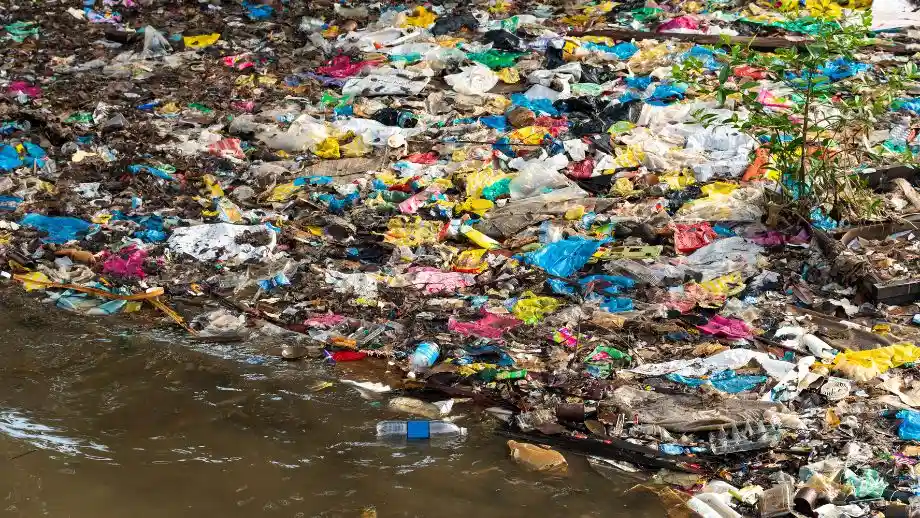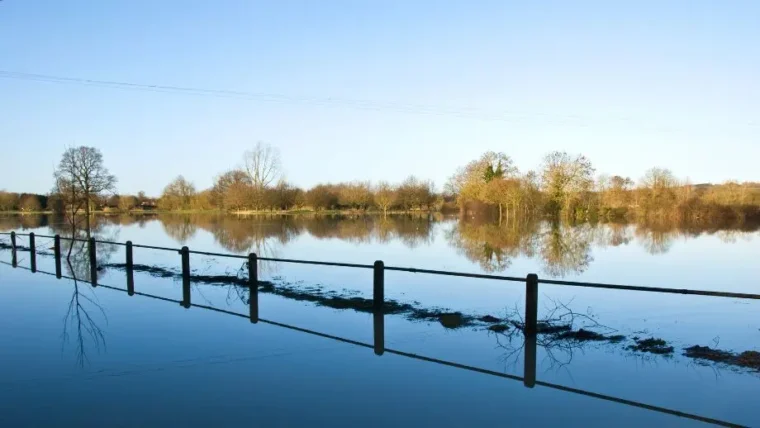
Legislation
Delay: Deposit Return Scheme for Scotland
The Deposit and Return Scheme for Scotland Regulations 2020, as amended, will introduce a deposit and return scheme (DRS) for single-use packaging used to supply soft and alcoholic drinks. The scheme was scheduled for 16.08.2023, however, will be delayed until 01.03.2024.
To place these products on the market, organisations will be required to register with the Scottish Environment Protection Agency (SEPA) or a Compliance Scheme. The deadline to register has been extended until 12/01/2024th. Applications to register with the scheme will need to be made by the 1st of March in every subsequent year from 2025 onwards.
Click here for the full legislation.
Guidance
Packaging data: tell us how you collected it for extended producer responsibility
If companies are affected by the extended producer responsibility for packaging, they may need to report data about their packaging.
Companies can also submit a document telling the environmental regulators how they gathered and recorded their packaging data. This is known as a ‘methodology’ and helps show that the data accurately represents the variety and amount of packaging a company is responsible for.
The Environment Agency has produced a guide to producing the ‘methodology’ document.
Storing and treating hazardous waste cable: RPS 276
This regulatory position statement (RPS) does not change a business’s legal obligation to have an environmental permit when they store or treat hazardous waste cable.
However, the Environment Agency will not normally take enforcement action when a business does this with a permit or exemption that does not include the correct waste codes for hazardous waste cable if they comply with the requirements in this RPS.
This enforcement position does not apply to any other legal requirements.
Storing and physically treating hazardous metal shredder residues: RPS 274
This regulatory position statement (RPS) does not change a business’s legal obligation to have an environmental permit when they store or physically treat metal shredder residues that are hazardous waste.
However, the Environment Agency will not normally take enforcement action when business’s store or physically treat hazardous metal shredder residues with a permit that does not include the correct waste codes if they comply with the requirements in this RPS.
This enforcement position does not apply to any other legal requirements.
Energy Security Bill
The Energy Security Bill was introduced into Parliament on 06/07/2022, with the aim to deliver a cleaner, more affordable, and more secure energy system. On 16/05/2023, a policy statement relating to the Energy Security Bill, on the retention, reporting and disclosure of carbon dioxide storage information and samples was uploaded to the gov.uk website.
For access to the full policy statement, click here.
For more information on the Energy Security Bill, click here.
Single-use plastics ban: plates, bowls, trays, containers, cutlery and balloon sticks
From 01/10/2023, businesses must no longer supply, sell or offer certain single-use plastic items in England.
The ban on these items will include:
- online and over-the-counter sales and supply,
- items from new and existing stock,
- all types of single-use plastic, including biodegradable, compostable and recycled,
- items wholly or partly made from plastic, including coating or lining.
The single-use plastic items include plastic plates, balloon sticks, trays, polystyrene food and drink containers, and plastic bowls.
Businesses can still supply single-use plates, bowls and trays if either of the following apply:
- they are supplying them to another business,
- the items are packaging (pre-filled or filled at the point of sale).
Businesses can still supply food or drink in polystyrene containers if it needs further preparation before it is consumed. For example, further preparation could mean:
- adding water,
- microwaving,
- toasting.
Click here for the full guidance.
Articles of Interest
Airline company faces possible lawsuit over carbon-neutral claims
A Californian resident has filed a case against an airline, claiming to act on behalf of anyone who previously flew with airline while living the state since March 2020. She is alleging that the airline has inaccurately billed itself as the first ‘carbon-neutral airline’ while relying on inadequate carbon offsets.
The resident filing the case, claims that when the airline promised to go carbon neutral in 2020, it allowed the airline to gain market share and charge higher prices.
The lawsuit claims that the airline purchased credits from projects around the world but the benefits from the offsets were likely to be only temporary and would have happened without the airline’s investment.
For a carbon credit to be valid, it has to provide a benefit that would not have happened otherwise.
The airline stated “Since 31 March, 2022, [the airline] has fully transitioned its focus away from carbon offsets toward decarbonisation of our operations, focusing our efforts on investing in sustainable aviation fuel.”.
The case will not become a class action until state or federal court certification – a process that can take months or even years.
Source: edie.net
Click here for the full article.
Gloucestershire’s River Wye downgraded amid ‘pea soup’ of pollution from chicken farms
Natural England has downgraded the official status of the River Wye to “unfavourable-declining”, after fewer aquatic animals and plants were recorded. The river, which flows for 155 miles from mid-Wales to the Severn Estuary, has seen record declines of Atlantic salmon and white-clawed crayfish.
When it was last assessed in 2010, only one of the seven English units was rated as “favourable” for wildlife.
The Wildlife Trusts said the River Wye had become a “pea soup” of farm pollution, causing algae to bloom and use up the oxygen vital to aquatic animals and plants.
“In recent months, concerns about nutrient pollution from intensive chicken units, livestock farming and from sewage have escalated on both sides of the Welsh-English border,” the trusts said.
They added that there was an “extremely high” number of chickens in the River Wye catchment area, potentially 24 million.
All The Wildlife Trusts along the route of the River Wye are calling for:
- the English and Welsh Governments to halt any new or extended livestock production units in the Wye catchment.
- Natural Resources Wales, the Environment Agency and local authorities to publish all the water quality data and manure management information they hold – and then step up to enforce the law.
- regulators, supermarkets and farmers to work with local stakeholders and Wildlife Trusts to create a shared vision for halting farm pollution in the River Wye catchment, with clear goals for a healthy river where nature is restored.
Source: ITV News
Click here for the full article.
Fines and Prosecutions
Two men jailed for illegal waste site
Between June 2015 and April 2017, two men managed businesses operating from a site in Lincolnshire. On the 8th of June 2015, an environmental permit was transferred to a business run by the two men, allowing the site to process mixed waste and extract recyclable materials.
The EA carried out site inspections shortly after and found failings. For example, the permit required a fire prevention plan to avoid a serious blaze, and prevent harm to the nearby arable land and residential properties that were 10m away. Inspections also revealed that waste was being stacked too high and close together, creating a fire risk. The waste had also become a health risk following an influx of mice and a problem with flies.
As a result, the Environment Agency suspended the site’s permit, stopping new material from being brought in between December 2015 and February 2016. Further visits by Environment Agency officers between March and May 2016 found that there were no firebreaks between the waste. This meant the waste stored on the site continued to present a huge fire risk. The company’s permit was suspended again in July 2016.
In July 2016, a new company registered an exemption to start waste work on another section of the site. One of the men was the registered director of this company. He also allowed too much waste into his section of the site leading to waste being stored unsafely and presenting a fire risk.
The two men reassured the Environment Agency that waste would no longer be brought onto the site and instead, the land would be redeveloped. However, the Environment Agency continued to find evidence of new waste being brought onto the land.
The Environmental permit for the site was revoked fully in March 2017 and the businesses were ordered to clear the site fully. The site was later searched under warrant where evidence was found to show waste moving on and off the site despite the restrictions put in place by the Environment Agency.
The two were both sentenced to eight months immediate custody and were disqualified from acting as a director of a business for five years.
Source: Gov.uk
For more information, click here.
Online Learning and Events
Webinar: scope 3 and resource efficiency; practical examples from the building sector
13th June 2023 13.30-14:30pm
Building operations, refurbishments and the changing use of space to accommodate more flexible ways of working and wellbeing criteria has the potential to generate more waste and disposal of items no longer required.
This is contributing not only to the use of resources, but also to the carbon emissions associated with the lifecycle of these items. The development of a Scope 3 Standard by and for the FM sector seeks to provide consistency and to promote circular economy principles into the role of FM and building management.
During this session, a panel of experts and practitioners will discuss the role of circular economy in FM and provide examples of practical engagement to help reduce scope 3 emissions.
This will be an ideal opportunity for anyone managing estates or working on resource efficiency for physical estates to learn from the development of this project, with time scheduled for a Q&A session with the speakers.








